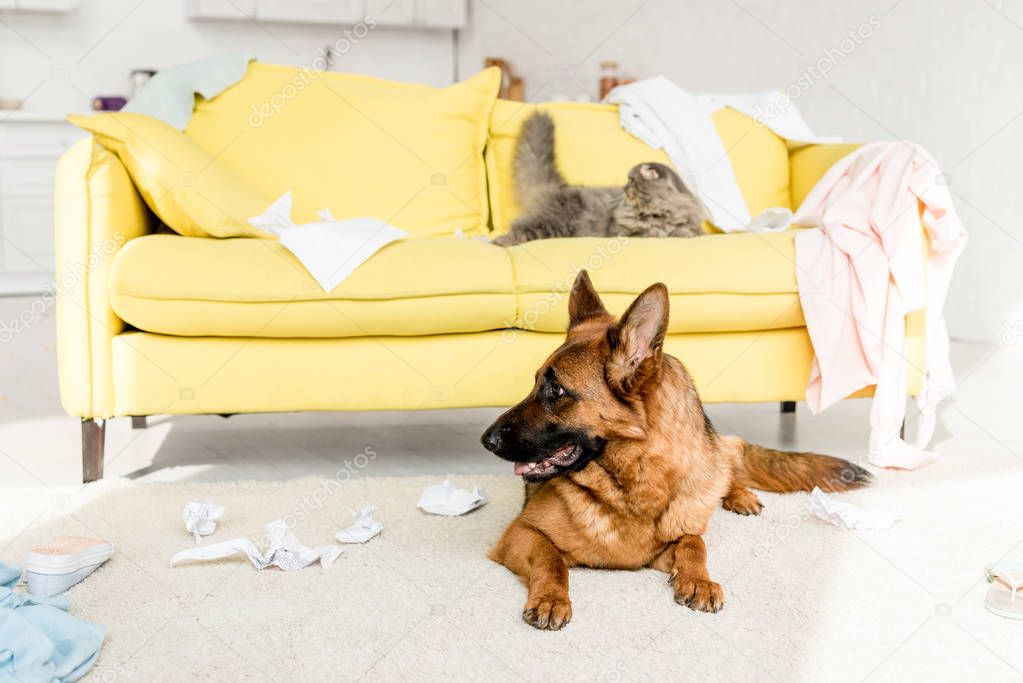As a dog owner, you might have asked yourself what is the recommendable hours that your puppy or adult dog should hold their bladder. Even if your dog is trained, he reaches a point and he cannot hold it any longer.
There is no direct answer as to the right amount of time you should let your dog hold his pee. This is because many factors like health, age, size, and diet play a great role in determining the duration they will hold it.
This article will help you to figure out what determines a dog’s potty breaks and simple tips to help your dog hold his bladder overnight.
Contents
What Determines How Long Dogs Hold Their Bladder Overnight
Age
Age is an obvious reason why dogs differ in their capacity to hold their bladders. Age can be grouped into three stages;
Puppies
Puppies cannot hold pee for long as adult dogs, their bladders are small in size and not fully developed. Younger puppies will need more potty breaks than older ones. This means a one-month-old puppy will hold pee for an hour, two months old for two hours, and so on.
You should train them from an early age so that even when they will have a high holding capacity they will have known their place.
It’s not advisable to use pee pads as it will bring confusion when you want to introduce potty training.
Related: 4-Month Old GSD Puppy
Adults
Adult dogs can hold their bladder for up to 8-9 hours without potty services. Though they can hold it longer, it is not advisable to let him hold it as it can lead to urinary tract complications. The amount of water consumed by your dog will also affect the number of hours he can hold his bladder.
Elderly
For a dog to be considered old, the breed plays a big role. Depending on a certain breed’s life span, that’s what helps to place a dog as old or middle-aged. If a dog is old, he will not be as active as he used to be, his diet and potty break schedule will change. An old dog is also prone to urinary tract infections which can make him not hold urine for long. At this age, pee pads are convenient.
Size
A big dog will hold his bladder for longer compared to a small one. Big dogs have a large bladder to hold more urine while small ones fill theirs quickly.
Health
Your dog’s health plays a great part in his ability to hold the bladder. Urinary tracts infections, diabetes, and kidney stones can make your dog hold urine for fewer hours. Take him to a vet for treatment, but also if your dog is under medication he can change his peeing routine.
Anxiety
If your dog is anxious or stressed, he will pee frequently. Even the trained dogs when anxious, will not hold it for long. Talk to a dog behaviorist for advice on how to handle an anxious dog.
Change in Seasons
During the hot season dogs tend to drink lots of water, they reduce their body temperatures by peeing frequently. In the cold season, they will drink less water hence peeing less.
Diet
Your dog’s diet determines its rate of peeing. A dog that feeds on too much dry food will tend to pee less compared to one the feeds on wet foods. If you feed your dog too much dry food, you make him prone to urinary tract infections and digestion problems. If your dog is peeing dark yellow urine, it’s time to add wet food or broth to his diet. If the color doesn’t change, take him to the vet for a checkup.
Level of Training
If you do not train your dog to hold his bladder, he will pee whenever and wherever he wants. You should potty train your dog at an early age.
Simple Tips to Help Your Dog Hold His Bladder Overnight
Have a routine
Dogs are wise animals; their minds can easily master a schedule. If you take him out to pee at a specific time, he will hold his bladder waiting for the time. Have a regular schedule to avoid confusing your dog.
Crate training
Crate training plays a great role in a dog’s bladder control, especially at night. Train him to enter a crate, but don’t force him. Place toys, food, and water for him to relate the crate with good activities. When he is finally comfortable with the crate, lock him inside. The dog will take the crate as his territory and he cannot pee or poo inside.
Avoid Giving Him Too Much Water at Night
If your dog drinks less water at night, the less he will pee. Take away water bowls 2-3 hours before his sleeping time, he will have less urine when you lock him in a crate.
Clean Up His Urine
If there is an ‘accident’ in the house, always clean the spot immediately. Use a strong detergent as dogs can smell the urine and pee again at the same spot.
Conclusion
Remember that dogs depend on us to help in doing lots of things. They also have needs just like human beings. If you want a healthy dog, take him out for potty services. Do not experiment with the duration he can hold it.
